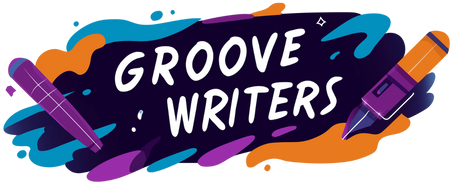Afternoon naps offer surprising productivity benefits
Picture this: It’s the middle of the day, and you’re feeling exhausted from hours of work. All you want to do is close your eyes and take a quick nap. But wait, napping in the middle of the day? Isn’t that unproductive? Well, what if we told you that taking afternoon naps can actually boost your productivity? That’s right, napping during the day can offer surprising benefits for your productivity. In this article, we’ll explore the advantages of afternoon naps and how they can improve your overall work performance.
The Science Behind Afternoon Napping
Before we dive into the benefits of afternoon naps, let’s take a look at the science behind why we feel the need to nap in the first place. Our bodies are regulated by a natural circadian rhythm, which controls our sleep-wake cycle. According to this rhythm, humans are designed to feel more tired in the afternoon, around 2-3 pm. This is also known as the “mid-afternoon slump”. Our body temperature and energy levels drop during this time, making it the perfect time for a quick snooze.
Boosts Alertness and Focus
While napping may seem counterintuitive to productivity, research shows that taking a 20-30 minute nap can actually improve alertness and focus. This is because napping helps clear the adenosine molecules from our brain, which build up throughout the day and make us feel drowsy. By reducing these molecules, napping can improve our cognitive function and help us stay alert and focused for the rest of the day.
Improves Memory and Learning
If you’ve ever felt like you can’t retain information after a long day of work, then you might want to consider taking a nap in the afternoon. Studies have shown that napping can have a positive impact on our memory and learning abilities. In fact, a short nap can improve our memory consolidation, which is the process of transferring information from short-term to long-term memory. This means that not only will you feel more focused after a nap, but you’ll also have better recall and retention of information.
The Productivity Benefits of Napping
Now that we understand the science behind napping, let’s explore how afternoon naps can actually boost our productivity.
Reduces Stress and Improves Mood
Afternoon naps can do wonders for reducing stress and improving our overall mood. When we nap, our body releases a hormone called cortisol, which helps us feel more relaxed and less stressed. This hormone also plays a key role in regulating our emotions and mood. By taking a nap, we can reset our mind and body, and come back to work feeling more refreshed and in a better mood.
Increases Energy and Motivation
It’s no secret that feeling tired and drained can greatly impact our productivity. But by taking a quick nap, we can recharge our batteries and increase our energy levels. This can help us feel more motivated to tackle our tasks and complete them more efficiently. Napping can also improve our physical stamina, making us less likely to feel fatigued and more capable of handling our workload.
Enhances Creativity and Problem-Solving Skills
Napping doesn’t only have benefits for our physical and mental well-being, but it can also enhance our creativity and problem-solving abilities. During sleep, our brain is still active and processing information. This allows our creative side to be more active, making it easier to come up with innovative solutions and think outside the box. Similarly, napping can help us approach problems with a fresh perspective, leading to more effective solutions.
Tips for a Productive Afternoon Nap
Now that we know the benefits of an afternoon nap, how can we make sure we are getting the most out of it? Here are some tips to keep in mind:
Keep it short:
The ideal length for a nap is between 20-30 minutes. This ensures that you enter the light stages of sleep and wake up feeling refreshed, without disrupting your nighttime sleep schedule.
Find a quiet and dark space:
Avoid napping in a noisy or bright area, as this can make it harder to fall asleep and achieve a restful nap.
Set an alarm:
Make sure to set an alarm for your nap so you don’t oversleep and feel groggy upon waking up.
Stay hydrated:
Drinking water before a nap can help you wake up feeling more refreshed and energized.
Plan your nap strategically:
If you know you have a busy day ahead, schedule your nap accordingly. This will help you make the most out of your nap and prevent it from interfering with your productivity.
In Conclusion
Napping in the afternoon may seem counterproductive, but as we’ve seen, it can offer some surprising benefits for our productivity. By improving our alertness, memory, mood, and creativity, afternoon naps can help us tackle our tasks more efficiently and effectively. So the next time you feel that mid-afternoon slump, don’t hesitate to take a quick nap – your body and mind will thank you.










